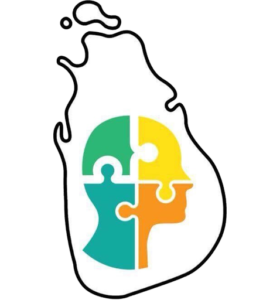Roles and Responsibilities of a Speech and Language Pathologist in the School Setting
Roles
Speech and Language Therapists/Pathologists,
♦ Work across all age/grade levels to identify students with communication disorders, including those involving language, learning, articulation, fluency, voice, and swallowing.
♦ Observe students exhibiting the full range of communication disorders in different settings within the school environment and perform formal/informal assessments for early identification and to identify the possible impacts on student’s education.
♦ Differentiate language disorders from cultural and linguistic differences, socioeconomic factors, lack of adequate prior instruction, and the process of learning subject matter presented by a second language used in the schools.
recognize and address the impact of language demands and the effect of second language acquisition have on a student’s ability to access the curriculum.
♦ Plan and implement intervention for students with communication disorders and associated learning difficulties by setting SMART goals.
♦ Monitor and evaluate the progress of students to change, modify or continue the tailored intervention plan.
♦ Educate the other members of the staff on modifying the learning environment to enhance students’ communication development. Subsequently initiate collaborative planning, teaching, and assessing student progress within classroom settings.
♦ Contribute substantially to the educational achievements of students with communication disorders, as well as other students who struggle in school settings by recommending necessary accommodations in order to succeed within peers.
♦ Assist in amending the linguistic and metalinguistic foundations of the existing curriculum for students with disabilities as well as other learners who are at risk of failure in the classroom setting.
♦ Make appropriate referral to other medical/educational professionals as early as possible.
Responsibilities
♦ Educate teachers, other school professionals, administrators, support staff, families, and the school community on the roles and responsibilities of SLP in a school setting.
♦ Advocate for the students by educating the teachers, administrators, support staff and families on communication and learning difficulties in children and adolescents.
♦ Collaborate with others to conduct assessments and identify students with communication disorders and learning difficulties through an evidence-based decision-making process.
♦ Provide age-appropriate intervention consistent with evidence-based practice that addresses the learning needs of individual students to prevent academic failure.
♦ Attend to the personal, social/emotional, academic, and vocational needs of the student that have an impact on attainment of educational goals.
♦ Actively engage students in goal planning, intervention implementation, monitoring of progress, and self-advocacy appropriate to age and ability level.
♦ Gather and interpret data for each student to evaluate the outcome of the intervention plan.
♦ Maintain records/therapy log, on initial and subsequent evaluation during the intervention process and on the point of discharge as well as proper review of the records.
♦ Share information with all key individuals involved in the student’s education.
♦ Engage families in planning, decision making, and program implementation.
♦ Advocate for the students with communication and learning disorders by educating the other students on the importance of peer support, peer advocacy against bullying as well as on the changes required in the learning environment.
♦ Collaborate with SEN teachers and school counselors to develop resources for students with communication disorders, special education needs and associated psychological problems.
♦ Work with the other members of the staff to incorporate speech and language therapy goals to the Individualized Education Plan (IEP) and attend IEP meetings.
♦ Conduct research in the field of communication and learning difficulties to guide decision making and determine the effectiveness of service provision.
♦ Engage in supervision of student SLPs as well as in mentoring new SLPs.
